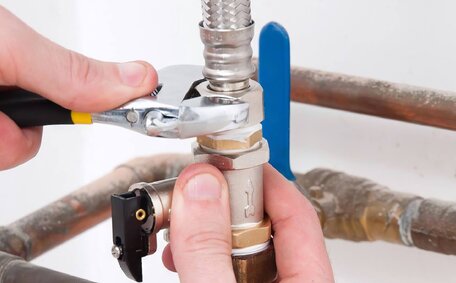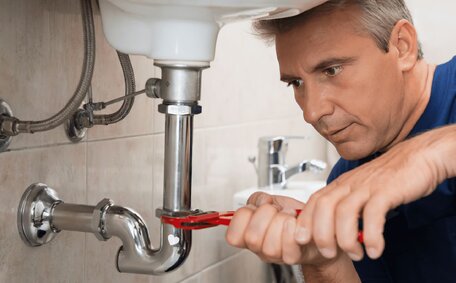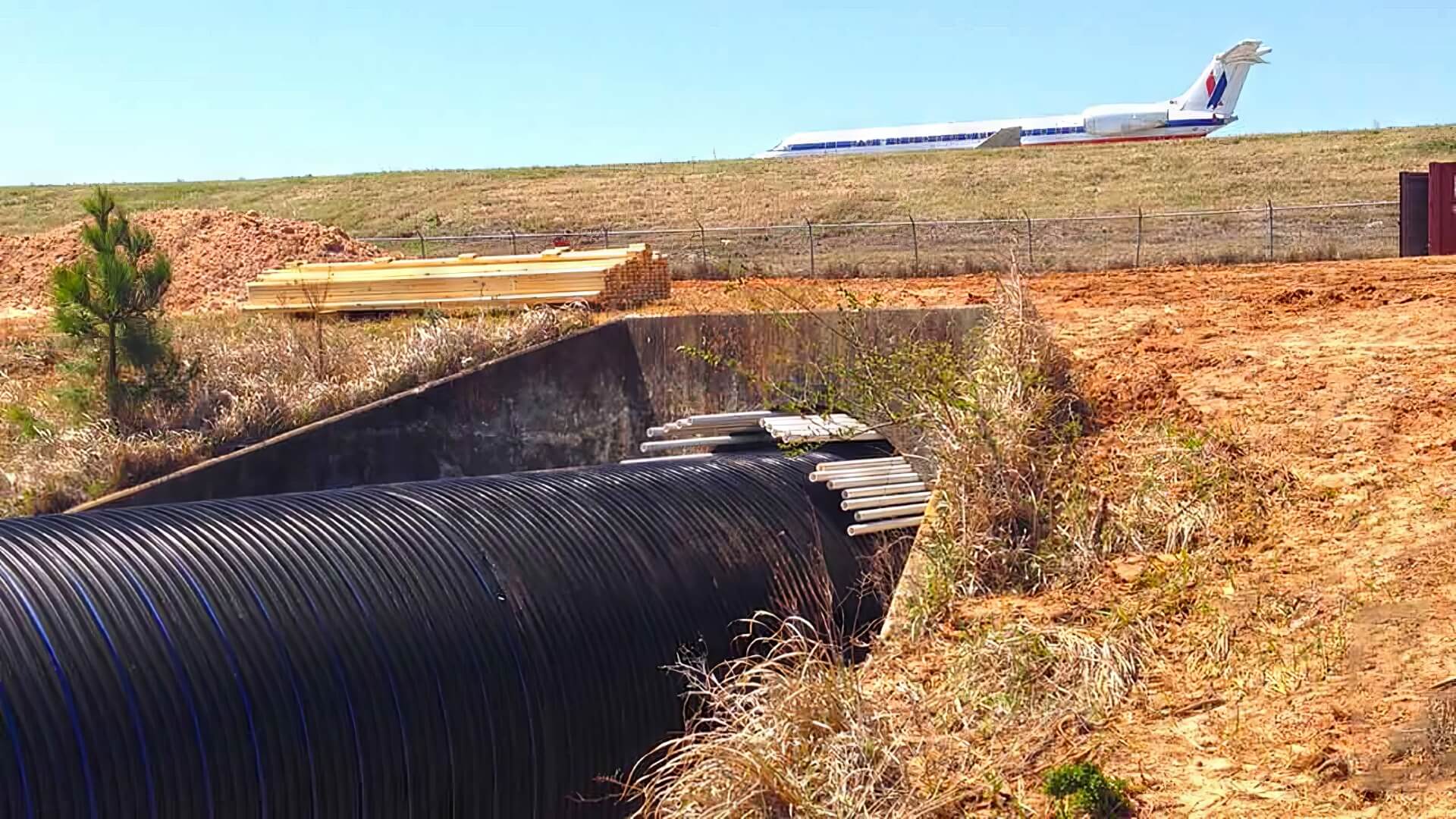
Is a broken tap an emergency?
A broken tap that is causing flooding, water wastage or damage should be treated as a plumbing emergency. Call our 24/7 emergency plumbers for prompt repairs to burst pipes, damaged taps, water leaks and more.
Read MoreGas safety is essential in both homes and businesses. Gas leaks and malfunctions in appliances like heaters, stoves, and hot water systems pose serious risks. Identifying and addressing potential gas-related issues promptly with licensed professionals is key.
This article from North Ryde Plumbing, located in North Ryde, Sydney, will offer guidance on how detect gas leak and common issues with gas appliances. We will outline gas leak detection methods, telltale signs of heater or stove malfunctions, immediate steps if a problem is suspected, and guidance on consulting a licensed gas fitter.
As specialists in plumbing, gas fitting and general maintenance, North Ryde Plumbing possesses the expertise to assist with gas leak concerns and any gas appliance or plumbing issues. Contact us by email or phone to inquire about our services and schedule an inspection of your gas appliances by a licensed technician.
Prompt detection of gas leaks is critical to ensure the safety and prevent hazards in your home. A natural gas leak in its pure form is odourless, so if you smell gas, it’s due to an odorant called mercaptan added to the gas, which helps identify leaks. Symptoms of a gas leak may include:
To reduce the risk of carbon monoxide (CO) exposure, it’s wise to get your heater serviced annually if it’s over 10 years old, or every two years for newer models. We also advise installing an indoor gas safety device like a gas detector or carbon monoxide detector, especially for space heaters without flues. If you suspect gas leak issues, contact North Ryde Plumbing for servicing your heater and inspecting your devices to ensure your gas systems are safe.
A prominent indicator of a gas leak is a strong rotten egg odour, a result of the added mercaptan odorant. Additional indicators for performing gas leak checks:
If there are no clear signs but gas issues are suspected, evacuate immediately and contact emergency services.
Avoid using phones, operating light switches, or igniting flames near a suspected gas leak, as they could trigger an explosion.
There are a few methods available to detect gas and test whether gas leaks exist. Professional gas fitters identify gas leaks using specialised equipment to perform thorough checks and pinpoint any issues.
Chemical smoke tests involve blowing smoke around appliance connections, valves, and joints; the smoke moving towards a leak helps pinpoint its location.
Leaks can also be detected by the formation of bubbles at the site.
Gas fitters use combustion gas analysers to sample and test the exhaust fumes from gas appliances, detecting even subtle issues. This helps determine if dangerous gases are escaping or builds up exist.
Installing detectors at home is crucial to avoid the risk of carbon monoxide poisoning and to prevent unchecked leaks from driving up gas bills.
Arrange an inspection with your gas supplier or North Ryde Plumbing for any gas leak or appliance issues at your residence. Our licensed technicians detect gas leak your lines and make sure they’re equipped with the proper tools and expertise to resolve any issues.
Regular maintenance and servicing of your gas heater are vital to ensure energy efficiency and safe operation. It’s crucial to adhere to the maintenance guidelines and safety recommendations provided by appliance manufacturers.
Gas stoves, hot water systems, and similar appliances over 10 years old need to be serviced annually by a licensed gasfitter. Newer appliances should be serviced every two years. A qualified technician’s maintenance check includes:
Using a licensed gas fitter to check your gas system during maintenance is strongly advised. Our technicians at North Ryde Plumbing have extensive training and experience servicing all common gas appliances. We use advanced diagnostic tools to detect any problems not visible through standard checks.
Contact North Ryde Plumbing to book an appointment for servicing your gas appliances. Routine professional maintenance ensures your systems are operating gas safe, providing peace of mind that they’re both safe and efficient.
Carbon monoxide, which can also be released by faulty gas appliances, is a dangerous, odourless gas. Install carbon monoxide detectors throughout your home, especially near bedrooms, as a critical safety measure. If the alarm sounds, evacuate immediately and off call licensed professionals once outside.
Carbon monoxide poisoning symptoms include headaches, dizziness, nausea, and confusion. Prioritise safety by shutting off the gas supply and re-enter only after professionals have deemed it safe.
Seek immediate medical attention if carbon monoxide poisoning is suspected.
Regular servicing of gas appliances, including natural gas LPG devices by qualified technicians at North Ryde Plumbing, can prevent carbon monoxide risks. We offer full safety inspections and maintenance to provide peace of mind your systems are not exposing you to this dangerous gas.
If you suspect a gas leak from your heater or any appliance, following the correct emergency protocol is critical to ensuring safety.
A gas leak in your system resulting from natural gas can be extremely hazardous if not handled correctly. Allow emergency services and licenced professional gas fitters to inspect and repair any leaks in your property. To detect a gas leak in your home or business for response or repairs, contact North Ryde Plumbing’s emergency plumbers on 1300 349 338.
When selecting gas leak detection equipment for household or commercial use, there are a few key features to look for:
High-quality carbon monoxide (CO) detectors should:
Hardwired electric and 10-year sealed battery models for lp gas detectors provide the most convenient, reliable protection. Install a CO detector on each level of the home/building according to manufacturer guidelines.
Specialist gas leak detectors for those who use natural gas, utilized by qualified technicians like those at North Ryde Plumbing, feature:
Contact North Ryde Plumbing to have one of our licensed gas fitters complete thorough leak checks on your appliances, ensuring negative pressure areas are assessed using professional-grade detection equipment for your safety and peace of mind.
Australian standards and regulations outline critical protocols for gas leak responses applicable across residential, commercial, and industrial settings. Compliance with these standards and regulations minimises the risk of gas leaks in your commercial establishment’s systems and appliances.
Critical gas safety standards include:
These standards impose strict requirements around design, construction, installation, operation and maintenance of gas leak your commercial infrastructure and fittings.
There are also important regulations from SafeWork NSW concerning gas leakif issues safety compliance for your commercial businesses and premises.
Requirements cover areas like:
Adhering to all relevant standards and regulations is crucial for safety. What to do for safety? Contact North Ryde Plumbing on 1300 349 338 for professional gas safety compliance checks and services.
A broken tap that is causing flooding, water wastage or damage should be treated as a plumbing emergency. Call our 24/7 emergency plumbers for prompt repairs to burst pipes, damaged taps, water leaks and more.
Read MoreBurst pipes, blocked toilets, sewer backups and lack of hot water are among the most common residential plumbing emergencies that require urgent attention from a professional plumber. If you experience any of these issues, call our 24/7 North Ryde emergency plumbers right away for fast, reliable service.
Read MoreTo determine if a relined pipe meets safety standards, professionals use equipment like CCTV cameras and hydrostatic pressure tests. Relining pipes is an affordable, non-invasive alternative to full replacement that can extend pipe lifespan 50+ years if done properly.
Read MoreNorth Ryde, 2113 NSW
We will call back as soon as possible.




